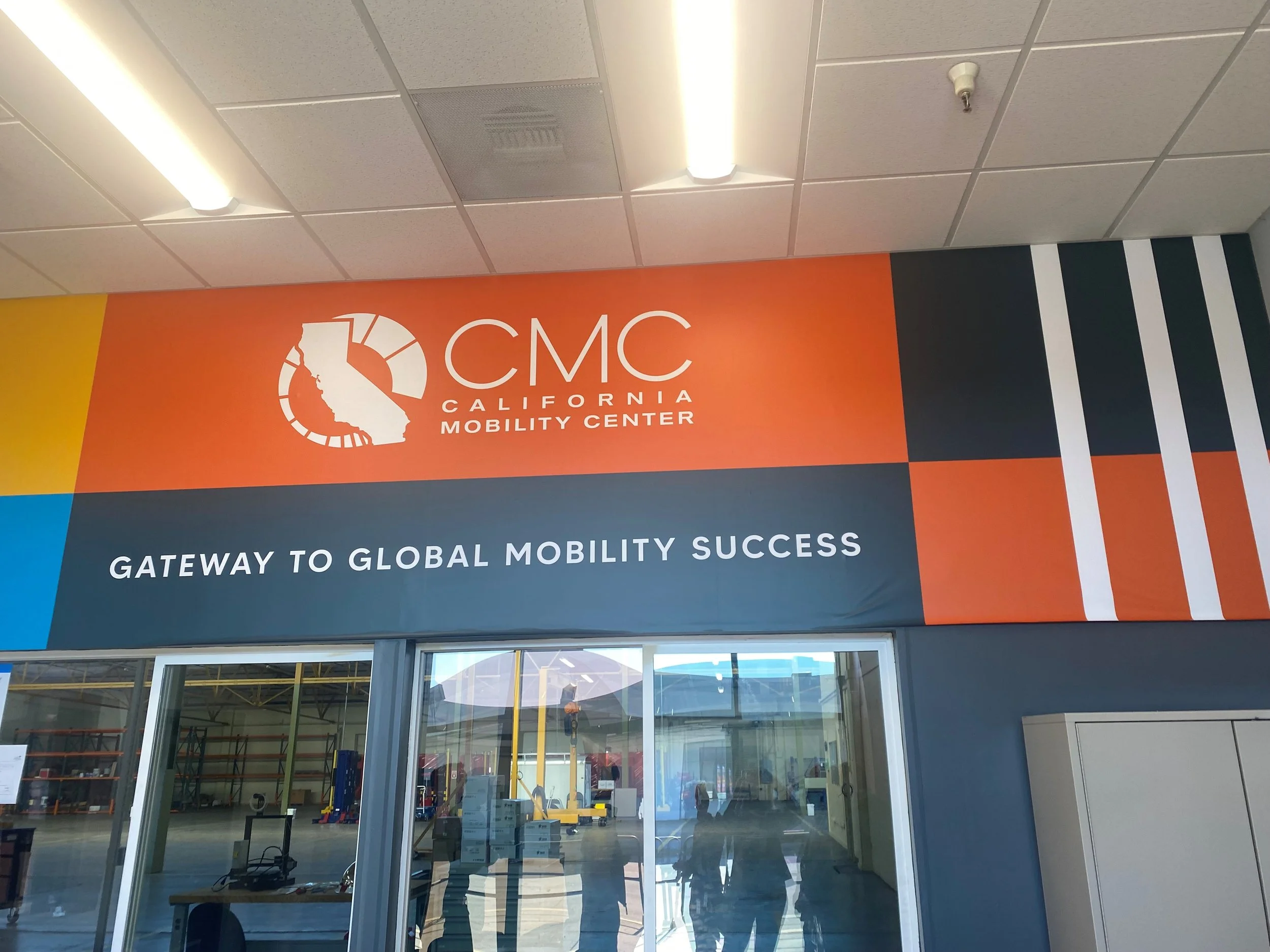Sacramento City Council pledges investment in California Mobility Center
Sacramento (Sept. 20, 2022) The Sacramento City Council Tuesday committed to securing up to $100 million to partner with SMUD and Sacramento State University in a new manufacturing and training facility that will bring clean transportation products to market.
The California Mobility Center, which already runs a small “ramp-up” factory in Depot Park, was created by a consortium of leading Sacramento educational and corporate institutions, including the City of Sacramento, UC Davis, the Greater Sacramento Economic Council, Sacramento State University, and the Sacramento Municipal Utility District.
A nonprofit public benefit corporation, the mobility center’s mission is to speed the development of clean transportation solutions and create jobs in the clean mobility sector — with a particular emphasis on training residents of underserved communities.
Gas-powered vehicles are a major contributor to climate change. In the City of Sacramento, for example, transportation accounts for 56 percent of greenhouse gas emissions. California and Sacramento have been national leaders in adopting electric vehicles and installing charger capacity. New data shows that California, with only 10 percent of the nation’s cars, accounts for 40 percent of all zero-emission vehicles sold.
California recently adopted legislation to end the sale of gas-powered vehicles by 2035. This will require a significant increase in sales. EVs currently make up less than 20 percent of the new vehicle market in California and a far smaller percentage nationwide. Innovation breakthroughs and more affordable clean mobility options will speed EV adoption by consumers and commercial operators alike.
Given the imperative to move quickly, clean mobility technology presents an opportunity for rapid economic growth and the development of skilled jobs for regions that emerge as centers of this new industry.
“We want to be the center of all of that change and create jobs at the same time,” said Mayor Darrell Steinberg. “This is a climate, economic development, a job training initiative that hits on every part of what we want the future of Sacramento to be.”
The CMC and Sacramento State are planning to build a $130-million mobility industry acceleration facility on university land. The facility will include a factory, classroom and training space. Companies can come to the CMC to have their products manufactured and get help connecting to industry partners and financing. The center will hire workers through training programs and partnerships with Sacramento State, UC Davis and the Los Rios Community Colleges.
CMC’s currently operates a smaller factory in Depot Park. More than 300 workers have been trained and 100 placed in jobs with clean transportation companies like Siemens, said CMC Board Chair Arlen Orchard, who presented to the City Council on Tuesday.
He said the mobility center will offer “opportunity and hope” to Sacramento communities that have often been left behind in the technological revolution.
The planned acceleration facility will be located on Ramona Avenue in the Sacramento State Research Park (the “Hub”). The Hub is inside the Power Inn Alliance property-based improvement district and also within a federally designated Opportunity Zone. It will serve as a critical initial step for the development of the City Council-approved Sacramento Center for Innovation (“SCI”) Specific Plan area.
Sacramento State President Robert S. Nelsen Tuesday noted that the new manufacturing hub will be built on the former site of a juvenile detention facility. “This site will now be a place that will move our youth forward rather than holding them back,” he said.
This resolution passed Tuesday says the City will seek to provide up to $100 million in funding for the acceleration facility and related uses to fight climate change. The money would come through the Measure A transportation measure on the November ballot or through other sources. It would include up to $65 million in matching funds toward the development and construction of the ramp-up facility, up to $15 million for the purchase of equipment and outfitting of the factory, classrooms, and training spaces, and up to $15 million to assist the City of Sacramento in achieving its climate action goals and deploying new clean mobility technologies and solutions within the City.
Provided Measure A passes in November, city staff has committed to bringing back a legally binding agreement to the Council by Jan. 31 specifying where the funding would come from and exactly how it would be used.




